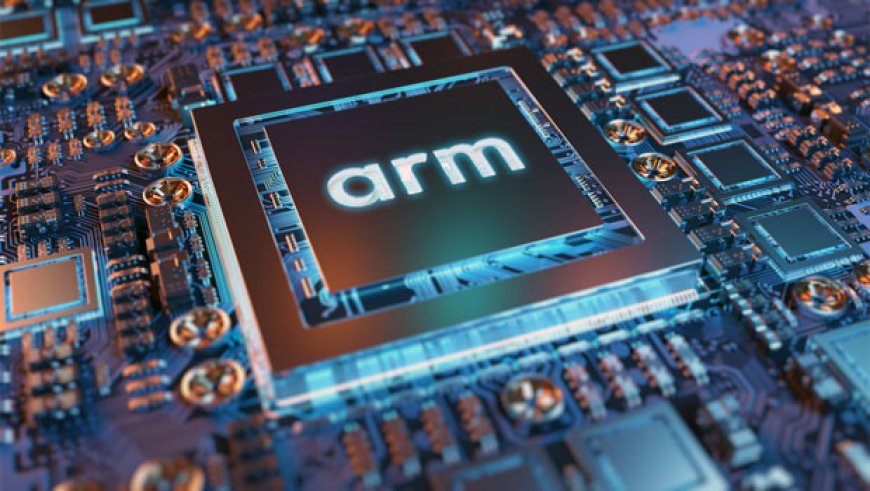Arm Poaches Amazon AI Executive to Drive Bold Chip Development Push
Arm has hired a senior Amazon AI chip executive to accelerate its chip development strategy, signaling bold ambitions in data center and AI semiconductor markets.

In a move that could reshape the global semiconductor race, Arm Holdings has hired a senior Amazon executive specializing in artificial intelligence chips to accelerate its own processor development. The strategic recruitment highlights Arm’s ambition to expand beyond its dominance in smartphone designs and challenge industry heavyweights in data centers and AI computing.
A Major Talent Grab from Amazon
The executive—previously a key leader at Amazon Web Services (AWS)—played an important role in developing custom AI chips used to power Amazon’s cloud computing services. These include Inferentia and Trainium, processors designed to handle machine learning workloads at scale.
By bringing this expertise in-house, Arm aims to leverage cutting-edge insights into AI hardware design, an area that has become one of the most competitive fronts in the chip industry. The hire signals that Arm is no longer content to be seen as just a mobile chip designer but is now gearing up for direct competition with Nvidia, AMD, and Intel in high-performance computing.
Industry analysts note that Amazon’s chip development has given the company a significant edge in reducing dependence on third-party suppliers. Now, Arm is clearly looking to replicate that success within its own ecosystem.
Arm’s Expanding Role in Semiconductors
Traditionally, Arm has built its reputation on energy-efficient processor architectures that dominate smartphones, tablets, and embedded devices. More than 99% of mobile devices globally use Arm-based designs. However, the rise of AI-driven workloads and cloud computing has created an urgent need for more powerful, specialized chips.
With this latest hire, Arm is signaling a push into data center processors and AI accelerators—markets that remain largely dominated by Nvidia and x86-based rivals. Companies are increasingly turning to custom silicon to optimize performance, cut costs, and reduce power consumption.
This expansion comes at a time when the semiconductor industry is experiencing historic demand, fueled by AI, 5G networks, and edge computing. According to the Semiconductor Industry Association, global chip sales are projected to surpass $600 billion in 2025, making the competition fiercer than ever.
Why AI Chips Matter Now
AI chips are the new battleground. Large language models, generative AI, and real-time machine learning applications require massive parallel processing power. While Nvidia currently dominates with its GPUs, hyperscalers like Amazon, Google, and Microsoft have invested in custom chip design to reduce dependence on external suppliers.
By recruiting from Amazon’s chip team, Arm is not only acquiring technical expertise but also insider knowledge of how hyperscalers design, test, and deploy AI silicon. This could accelerate Arm’s efforts to deliver competitive processors for AI-heavy data centers, where demand is expected to double in the next five years.
Competitive Implications
Arm’s move comes at a crucial time. The company recently re-listed on the Nasdaq, attracting strong investor attention amid the AI boom. By bolstering its leadership team with Amazon talent, Arm is positioning itself to attract partnerships with major cloud providers and potentially win contracts for AI data center deployments.
For competitors, this raises new challenges. Nvidia still dominates the AI chip market, but Arm’s deep relationships with hardware manufacturers give it an edge in scaling adoption quickly. Intel and AMD, meanwhile, face growing pressure as more companies explore Arm-based server architectures.
Experts suggest that Arm’s strategy could lead to a broader shift in the semiconductor landscape, with more companies opting for custom AI chips rather than off-the-shelf solutions.
Global Semiconductor Competition
This development is also significant in the context of geopolitics and technology supply chains. Governments across the U.S., Europe, and Asia are investing heavily in semiconductor independence to secure access to advanced chips.
With AI now considered critical infrastructure, Arm’s push into the sector aligns with broader global efforts to diversify away from single suppliers and create resilient chip ecosystems. The company’s growing ambitions could influence not only cloud computing but also industries like autonomous vehicles, robotics, and next-generation mobile networks.
For a deeper understanding of how AI hardware is reshaping global industries, the MIT Technology Review has documented how custom silicon is accelerating breakthroughs in machine learning while redefining corporate strategies.
Conclusion
Arm’s decision to hire a top Amazon AI executive marks a turning point in its corporate strategy. Once seen primarily as the quiet backbone of smartphones, Arm is now making a bold bid to enter the AI and data center chip markets—territory long controlled by some of the biggest names in semiconductors.
The move underscores a simple truth: in the AI era, whoever controls the silicon controls the future. And Arm is making it clear that it intends to be at the center of that future.








